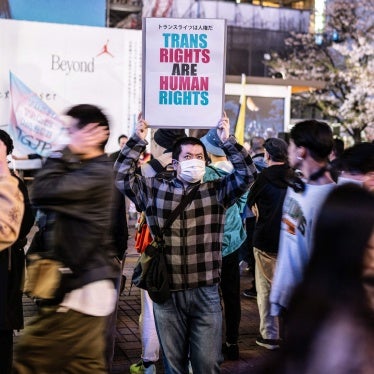At midnight last Friday, after a week of camping out at a Seoul police station, a group of about 100 lesbian, gay, bisexual, and transgender (LGBT) activists and supporters submitted an application to hold a pride parade. The police swiftly denied the request, which means South Korea’s bustling, cosmopolitan capital will be without a pride parade for the first time in 16 years.
While the activists were camping, anti-gay religious groups staged counter-protests and announced their plans to demonstrate if the parade went ahead. In the end, the police decided a parade presented the “possibility of inconvenience to pedestrian and vehicle traffic” in part because of the counter demonstrations the religious groups registered to hold at the same time.
It would be difficult to imagine a parade that didn’t impact traffic. Last year, opponents of LGBT rights blocked the parade route themselves by lying down in the street. This year the authorities effectively gave those groups a veto over the parade.
Rather than worrying about inconveniencing the travelling public, Seoul police instead should be concerned with providing equitable access to demonstration permits and protection for those who wish to demonstrate peacefully.
But such behavior is nothing new for South Korean officials.
In 2014, Seoul’s mayor canceled the enactment of a city human rights charter after religious groups opposed the mention of LGBT rights. He apologized after the fact. And when in early 2015 the government rolled out new sex education guidelines that excluded any mention of homosexuality, the Education Ministry claimed that on the one hand, “the subject of homosexuality is being treated from a human rights perspective in the curriculum,” but on the other, mention of homosexuality is excluded because “school education needs to be carried maintaining value neutrality regarding society, culture and religion.”
Such actions contradict South Korea’s leadership role at the United Nations, where it has voted for both the 2011and 2014 Human Rights Council resolutions calling for an end to violence and discrimination based on sexual orientation and gender identity, echoing UN Secretary-General Ban Ki-moon’s assertion that discrimination against LGBT people can never be justified.
Activists are appealing the police decision to withhold permission for the pride parade. Regardless, they plan to carry on with a stationary festival at a plaza in downtown Seoul. The government’s blithe indifference won’t quash the LGBT community’s pride, but South Korea can and should do better.








